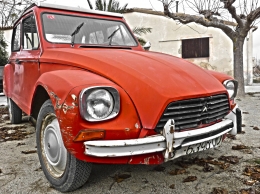If you have an old vehicle you would like taken away, consider donating it. Your vehicle is removed from your property free of charge, and you receive a charitable tax receipt. Best of all, you know the vehicle will be properly dismantled for parts, fluids, and other reusable materials in an environmentally sensitive manner.
Check the yellow pages for auto recyclers near you.
TO PREPARE FOR RECYCLING
•Title: Due to problems with car theft and vehicles being abandoned, you must be able to prove you are the legal owner of a vehicle--and its major parts--before a scrap dealer can legally take it from you.
•Materials: Drain all fluids (antifreeze, brake fluid, gasoline, motor oil, transmission fluid, etc.). Remove batteries, gas tanks, tires, oil filters and fuel filters. Have certified personnel extract chlorofluorocarbons (CFCs) from vehicles with air conditioning; a removal of CFCs certification must be provided.
PROPER DISPOSAL: Many auto wrecking businesses will pick up complete cars (those with motors and transmissions still intact) for no fee. If the vehicle has been scavenged for parts and motors, you can still drop it off at the wrecking yard for free. Some wrecking yards or shredders will pay for the scrap metal in your car. Check your local phone directory for a listing of "Automobile Wreckers Salvage."
WHERE DOES IT GO NEXT? Metals are separated by type and melted in furnaces to raw material for manufacturing new metal products. Steel, iron, copper, tin and other metals take tremendous amounts of energy to manufacture. During mining processes to extract raw ores, valuable natural habitats are damaged. Recycling scrap metals conserves energy, limited resources and wildlife habitat.
